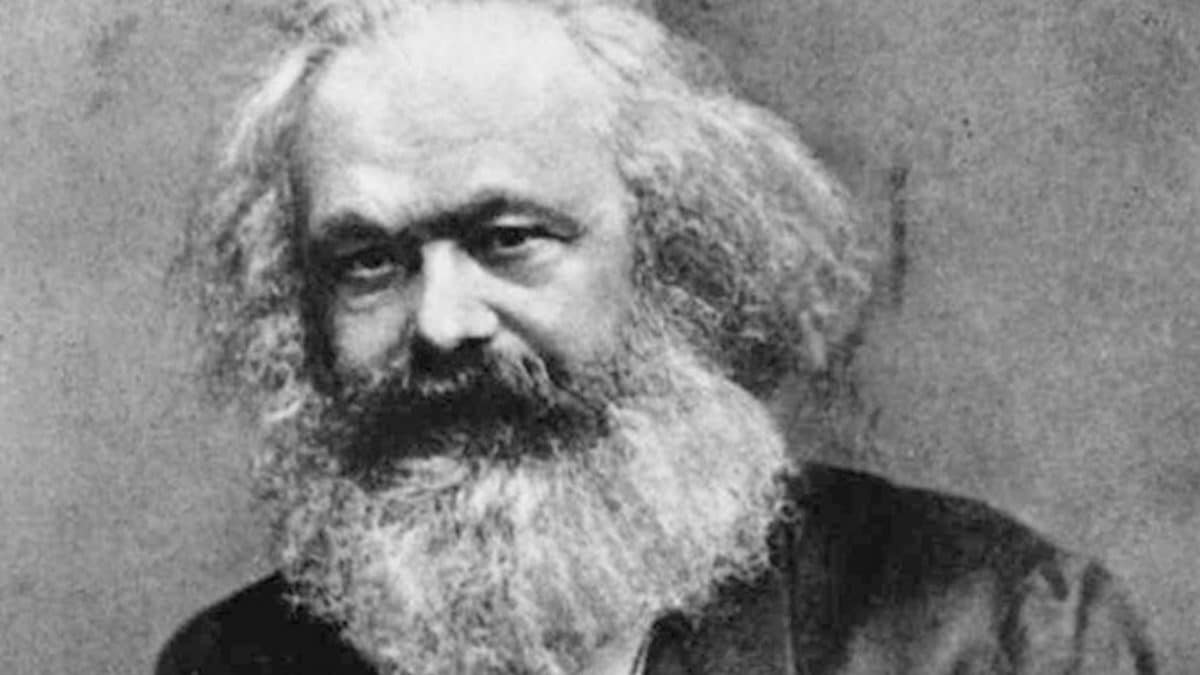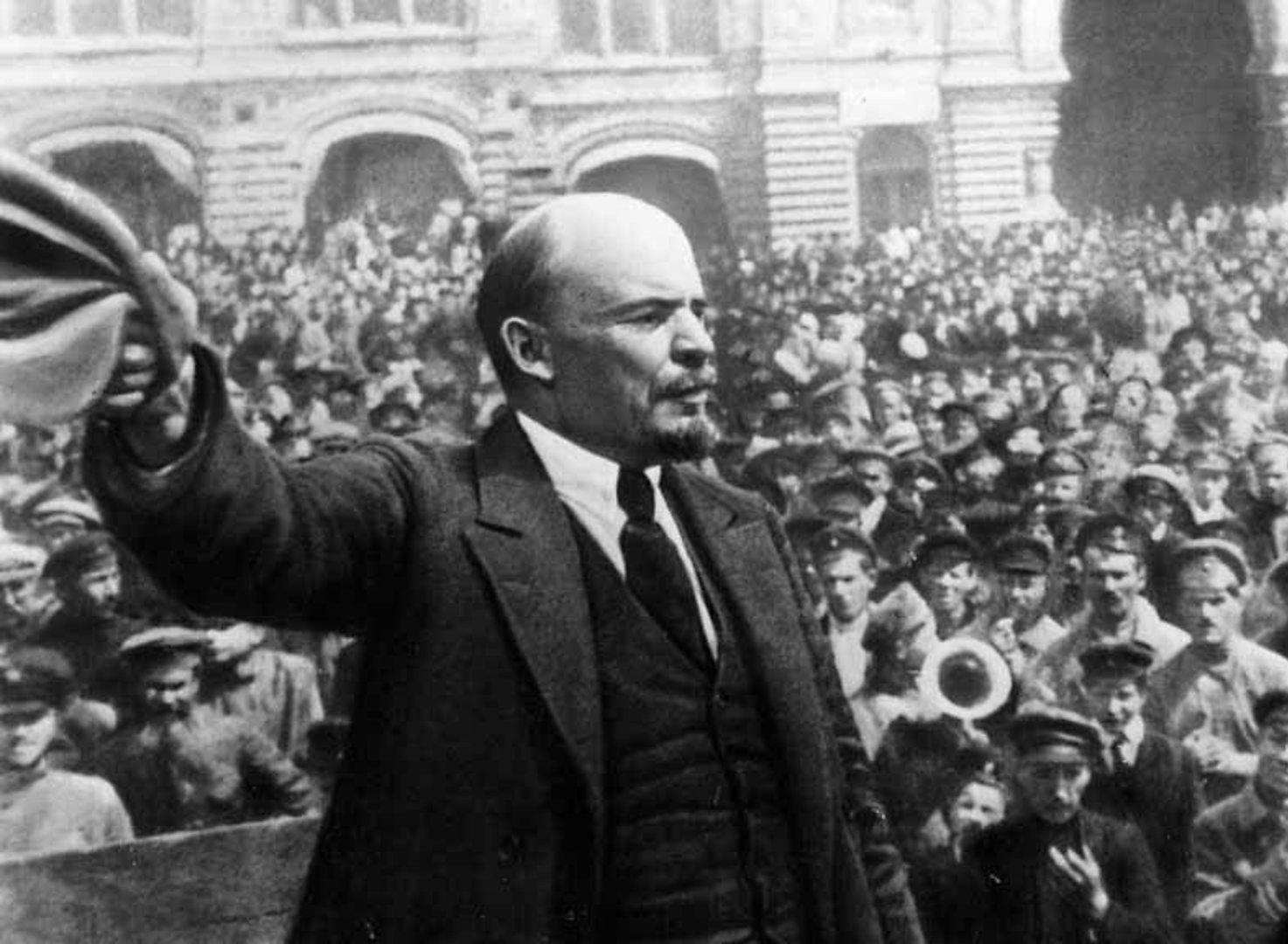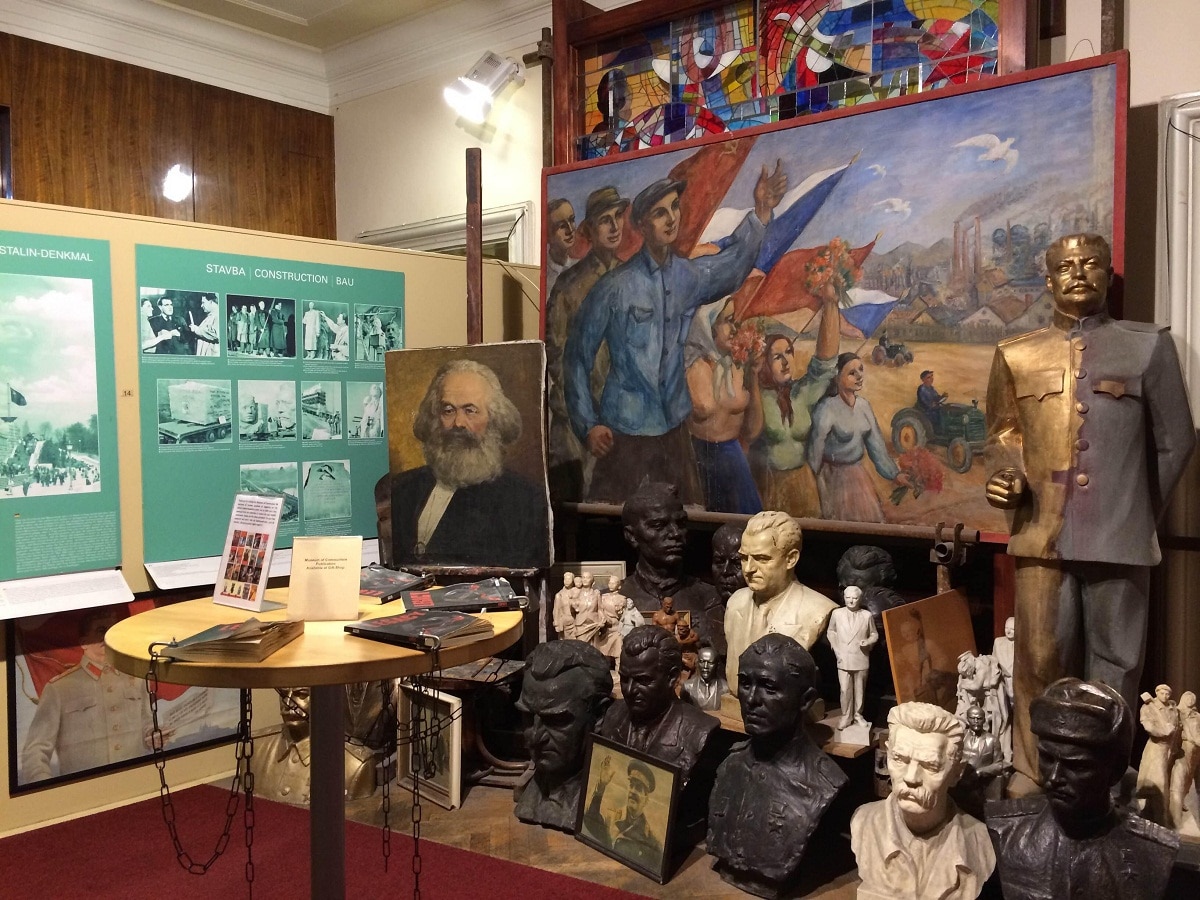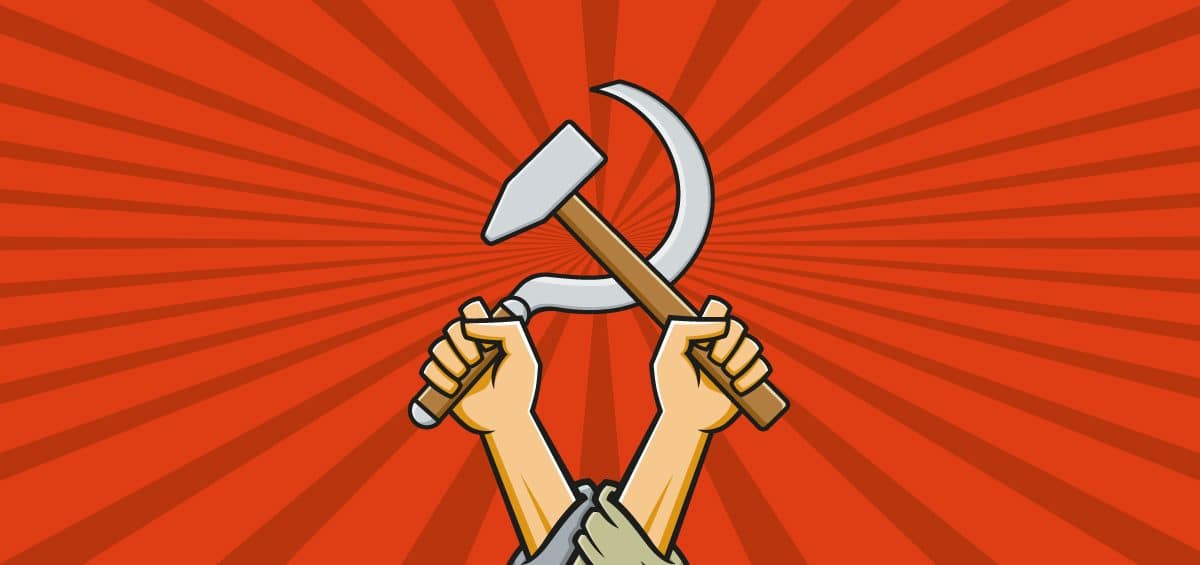Find out with us through this interesting article, about the Characteristics of Communism, its definition, countries that have adopted this ideology, why this thought has led to a paradigm shift and much more. Don't stop reading it!

What are the characteristics of Communism about?
It is an ideology of political, economic and social order that is based on the thought of Karl Marx, in the XNUMXth century, where he considers the characteristics of Communism, a society without social classes.
Along with the means of production, they must be in the hands of the State, achieving an equitable distribution of products and goods or services, among the members that make up the population, without the existence of private companies.
For which it is a political thought, which allows the organization of the social order, in which private property is replaced by community control of the various means of production, eliminating in the first order the social classes so that the distribution of financial capital is equitable among all members of the population being one of the characteristics of Communism.
It allows the leader to get used to being the owner of the control of the means of production and does not allow the people to be the one who makes the decisions as a responsible entity.
The Origin of Communism
It begins in the work of researchers Karl Marx and Friederich Engels, it is through these thinkers that the characteristics of Communism begin to be observed, specifically in Marx's Theory of Value.

Which is based on the fact that the value of a product is according to the time required for its elaboration, in the factories, but of this profit the workers receive a small amount, since the largest amount remains in the hands of the employer.
This great profit received by the entrepreneur, Marx gives the name of surplus value, which in the researcher's own words, in the year 1867, in his work Capital, Volume II, expresses the following:
"... The rate of surplus value is, therefore, the exact expression of the exploitation of the workforce by capital or of the worker by the capitalist..."
This happens since the entrepreneur is the owner of the company where the means that allow production are found, for which two classes are established in society: the capitalists who are the owners of the company where the means that allow production are found. .
In addition to the proletarian, who are the workers who allow wealth, for the capitalist, because the worker as such, only receives a small salary, this was called by Marx the class struggle.
For this society to persist without distinctions of social classes, it requires structures that are characteristic of communism, such as legal norms, the political system and religion, allowing the proletariat to become aware of its primary role in society. .
To eliminate capitalism, since the means of production would no longer be in the hands of a single owner, but rather would be publicly owned, eliminating social classes and therefore inequality.
For this reason, this movement was born to oppose capitalism, allowing the property of public order, being one of the characteristics of Communism, allowing society to become aware of its single-party importance, that is, a unitary policy, for totalitarianism based on the proletariat.
This ideological thought is opposed to capitalism, which is widely used in countries with higher technology, while one of the characteristics of Communism is the common good without class difference; which is obtained when the means of production belong to public property, thus preventing the existence of the owner class that are the bourgeoisie and an exploited class that are the proletariat.
This brings as a consequence a reflection and awareness of the social class as a collective, one of the characteristics of communism and not individually, as capitalism and liberalism do, for which it allows the establishment of a totalitarian system.

It is observed that in countries with communist thought, individual freedom is underestimated, since the new man would think about the importance of collective freedom, in the social, economic and political environment for the common good; demonstrating the characteristics of Communism.
Representatives of the doctrine of Communism
Karl Marx, of Jewish origin was a philosopher and economist, who was born in the city of Trier, today he belongs to the German nation, in the year 1818, he is considered the father of Communism, where he integrates scientific and contemporary socialism, his main The work is entitled The Communist Manifesto in the year 1848 and The Capital edited in the year 1867.
Friedrich Engels, of German origin, was a philosopher, journalist and sociologist, born in 1820, in the city of Barmen, a great friend and collaborator of Karl Marx, for which he carried out the continuation of the second and third part of the publication of the Capital works.
After Marx died, he collaborated on the Communist Manifesto, where Marxist ideology is based, one of the main characteristics of communism.
Vladimir Lenin, was one of the figures of the Russian Revolution in 1917, served as Provisional President of the Russian Republic in 1917, until his physical disappearance in 1924, created the Union of Soviet Socialist Republics in the year 1922, was inspired by Marx's communism, contributing his own ideas allowing the creation of Leninism.

In the company of other Bolshevik leaders such as Stalin and Trotsky, they adapted the ideas of Marx's communist thought according to their convenience.
Leon Trotsky, of Russian origin, from a very young age he was at the head of the Workers' League of the South of Russia, he fought against the monarchical regime of the Czars, the main protagonist of the October Revolution.
When Lenin died, he was against the thought of Stalin, which made him worthy of exile, leading to his death, but despite this he formed an ideology of permanent revolution known as Trotskyism.
Iosif Stalin, representative of Communism in the USSR in the 1922th century, served as General Secretary, in the Central Committee of the Communist Party, from 1952 to XNUMX, was in charge of directing politics in the Russian nation, from the beginning of the Republic, through dictatorship.
Well Trotsky was going to take control of the Russian State, dog Stalin led a revolution obtaining absolute power his intention was to expand the movement of communism; but his desire for power turned him into a tyrant, he participated in World War II, allowing the start of what became known as the Cold War.
Mao Zedong, main leader of the Communist Party of the Chinese nation, is also the founder of the People's Republic of China, in 1949, establishing an authoritarian regime until his death in 1976.
He took ideas from Marxism and Leninism, which he transformed according to his interest, obtaining the influence of the peasants, who were the sector that allowed him to lead the revolution in the Chinese nation.
Fidel Castro, is another representative of the 1959th century communist model, he was the one who led the Cuban Revolution in 2016, in addition to serving as Prime Minister of the Cuban nation since the victory of the Cuban Revolution until his physical disappearance in the year XNUMX, while he was in command of the island, the nation has not ceased to be Marxist.
Ernesto Che Guevara, of Argentine origin and medical professional, had the opportunity to participate in the Cuban Revolution, in addition to the reorganization of the State of Cuba, he wanted to take the revolutionary struggle of communism to other nations but his premature death, being the CIA responsible, made him into a leader of romantic communism in the XNUMXth century.
Dolores Ibarruri, they gave her the pseudonym of La Pasionaria, of Spanish origin, she was a political representative, and held the position of General Secretariat of the Communist Party of Spain, better known by its acronym PCE.

She was in the position of Deputy representing the region of Asturias in the period of the Second Republic, managing to ascend to Congress in the elections of 1977, in the Spanish political transformation.
Representative Countries of the characteristics of Communism throughout History
Chief among these countries has been the USSR Since 1917, thanks to the characteristics of Communism, it spread vertiginously to other places in Europe, Latin America, Asia and Africa, for which communist political parties were organized due to the international Communist organization known as the Comintern.
After the Second World War happened, the characteristics of Communism made a greater presence in the Soviet Union as a superpower, while the United States led the opposite of Capitalism, causing a period of forty-four years where the Cold War between these two Powers persisted. economics, from the year 1945 to the year 1989.
This year, thanks to the technological era and the audiovisual media, the fall of the Berlin Wall was evidenced worldwide, uniting a single nation; the Union of Soviet Socialist Republics, USSR presented a Marxist and Leninist system from its origins in 1922 until its culmination in 1991, during these nineteen years it was a demonstration of the characteristics of Communism.
It managed to defeat Nazism, it also demonstrated an excellent industrialization in the hands of the State, which allowed a dynamic and progressive economy that allowed a social policy for the common good, being one of the characteristics of Communism, becoming a superpower of the XNUMXth century, the pair of the United States that has a capitalist conception.

He was the highest representative of the communist line in the Cold War, for the decade of the eighties, it was tried in the midst of various monetary inconveniences to try to carry out a series of reforms to maintain the characteristics of Communism.
But they were inefficient and the last leader of this current, Mikhail Gorbachev, was unable to contain the dissolution of the Union in December 1991.
People's Republic of China, for the year 1949, after an exhausting civil confrontation between the inhabitants of the Chinese nation, the Chinese Communist Revolution, is the winner of this situation.
For which the People's Republic of China originates, being its maximum representative Mao Zedong, the political party that represents it is the Chinese Communist Party, demonstrating characteristics of Communism.
After twenty-nine years, various financial reforms have arisen in this Eastern nation that transform the communist system into a mixed-order economy, moving away from the characteristics of Communism to enter a liberal environment.

Demonstrating a great economic and business boom, although the system of democracy still has some drawbacks in terms of the importance of human and labor rights, in addition to the freedoms of public order, but despite this there are still nations that represent the characteristics of Communism on the globe.
Among these nations we can mention countries such as Algeria, Libya, Afghanistan, China, Mongolia and Nicaragua, today there are only five countries where the characteristics of Communism are still in force, such is the case of Cuba, North Korea, Laos and Vietnam. .
Cuba, due to the Cuban Revolution, in 1959, the dictatorial power of Fulgencio Batista was removed, for which a system of socialist order was established, which was based on the expropriation of various companies to later nationalize them as means of production, being one of the characteristics of Communism as well as an important reform in the agricultural environment for the benefit of the collective as a nation.
This new form of government established totalitarianism by creating a single party, where those opposed to these ideas are persecuted, in addition, a total reform of education was carried out, where the leaders of the Revolution are exalted, to perpetuate power. Through the culturalization of the collective, currently the Cuban nation continues to maintain characteristics of communism through a dictatorship.
North Korea, originated in 1948, the Republic of Laos, the current of Communism is formed in 1975, in Vietnam, this communist current since 1976.
The Main Characteristics of Communism
This ideological thought of social, political and economic order presents as the main standard-bearer the equality of the classes of social order, through the elimination of private property, allowing the equality of the means of production for each of the members of society.
One of the characteristics of Communism, as you can see in this article, is that it is based on the ideological thought of Karl Marx and Friedrich Engels, since both researchers were in charge of carrying out the communist current which they published in 1848, under the title The Communist Manifesto. They are specified in more detail in his next publication, entitled El Capital, which was published for the first time in the year 1867; By virtue of the exhibitions raised, in these two works, characteristics of Communism have been elaborated.
According to various thoughts of the Marxist order, producing various models of politics of the communist environment, examples of which have been the USSR, the Cuban nation, the People's Republic of China, North Korea, among others. Another of the characteristics of Communism, which allows you to highlight this article, is the birth of this thought as a change to the capitalist model, which took place on the European continent.
From the Industrial Revolution, allowing the transformation of the means of production and thus eliminate the difference in social classes. Evidencing an evolution of the individualistic society to a society of collective social order, where the capital generated by the means of production is divided equally among the members of the company for the common good; eliminating the bourgeoisie and the proletariat, being one of the most important characteristics of Communism.
The basis of Karl Marx and Friedrich Engels, in relation to the characteristics of Communism, present us with a structure in which society and the productive apparatus are integrated, as well as a superstructure where institutions come together. Allowing the imaginary development related to the cultural environment, justifying inequality through educational factors and religion, which is very frequent in the capitalist current.
It seeks to eliminate social classes through economic equality, one of the main characteristics of Communism, because in capitalist thought the bourgeoisie owns the companies that allow the means of production and the proletariat is the workforce, it is the one who allows that the work is produced but it is under the orders of the bourgeoisie.

This is why in capitalist thought, the proletariat cannot exercise dominance with regard to the means of production, much less in the elaboration or profit of the products that are presented.
Demonstrating that in this capitalist current, the oppression and exploitation of the proletariat are presented, but that it can be liberated thanks to the characteristics of Communism allowing a revolution and paradigm shift for a new social order.
Capitalism allows for a social alienation that contributes to inequality through the exploitation and oppression of the proletariat so that there is a profit in favor of the bourgeoisie.
On the other hand, in communist thought, it promotes culture in favor of the proletariat, becomes aware of its important function as a workforce, so that the transformation of a cultural revolution is allowed, forming a social conscience, one of the characteristics of Communism.
It is seen as one of the characteristics of Communism, the elimination of private property, so that there is equality of classes, ending the exploitation of labor, giving workers control of the means of production through efforts such as the union as well as grassroots collective organizations.
Where everyone is co-responsible for the decisions that are made, since there is no owner, therefore exploitation and inequality in the workforce that manages the means of production is suppressed.
Another of the characteristics of Communism that can be evidenced through this article is the opposition to individualistic thinking that does not allow the progress of a common good, since the representation of social equality where the collective prevails over the needs of the individual.
A radical opposition is carried out against the bourgeoisie, since ownership of the means of production cannot exist in communism in any type of ladder, which is observed in the aspects of ideological formation that are presented as characteristics of Communism insofar as to education, culture and religion.
The primary goal is the good of the collective, through the superstructure that is made up of the State, educational, cultural, religious and professional institutions.
One of the characteristics of Communism is to allow society to advance without the help of the State or of someone who guides it, but of the social conscience of the common good of its organization, but until now this utopia has not been observed in any of countries that fly communism as their flag.

In order for the State to be promoted by a society aware of the common good, it requires that the State teach it the importance of equitable distribution of profits, which is one of the characteristics of Communism, since the conscience of the people is what allows the distribution of wealth, which translates into excellent education and an efficient health system.
In order for this to happen, the State must promote a one-party system, another of the characteristics of Communism, to promote its ideology as unique and truthful, demoralizing those who try to think otherwise and even persecuting and cornering that thought in order to not hinder collective thinking.
As evidenced in the countries where communist thought has developed, it is the State that has control of the means of production through the monitoring of the unions, which is a characteristic of Communism, promoting the monopolization of the production apparatus.
Therefore, one of the characteristics of Communism is to enter all areas of social life, where the group develops to promote the common good, suppressing the information that can be transmitted by the various media in addition to education.
They proceed so that the State is the one who decides at all times on the actions of the Family in its revolutionary work where there should only be a single party, a single religion, the means of production and banking are controlled only by the State.

Allowing the leaders of said system to remain in power and any change in these characteristics of Communism is taken as a serious offense for the good of social conscience, which can lead organizations that take it as a flag to be persecuted by the communist government.
Another of the characteristics of Communism is not allowing thoughts contrary to those established in the one-party notion, the economy is controlled by the State through the various means of production, with the State itself being in charge of managing public property , the salary given to each of its members and the price of the goods that are manufactured.
If you have found it interesting, this article on "Characteristics of Communism and What is it?" I invite you to visit the following links: